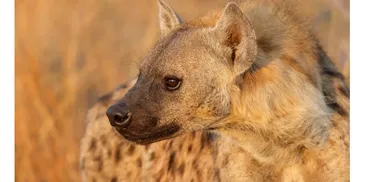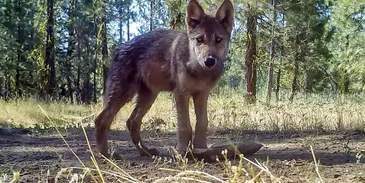The Vietnam ferret-badger (Melogale cucphuongensis) is a small, recently described species of ferret-badger native to northern Vietnam, specifically discovered in Cúc Phương National Park. It has a slender body, short legs, dark brown fur, and distinctive white facial markings, including a stripe along the snout and pale patches around the eyes and cheeks. Very little is known about its behavior, but like other ferret-badgers, it is likely nocturnal, omnivorous, and shelters in burrows or natural crevices. Due to its limited known range and lack of data, it is currently classified as Data Deficient by the IUCN, and its conservation status remains uncertain.

My First Reaction Was Disbelief – Spotted Hyena Seen in Egypt for First Time in 5,000 Years [Discover Wildlife – January 22, 2025]
What’s This Story About: A spotted hyena was spotted—and killed—in southeastern Egypt, marking the species’ first confirmed presence there in 5,000 years. Found 500km north of its expected range, this unexpected sighting has scientists scrambling to understand what it was doing so far from home.
Why This Story: This incident raises serious questions about shifting habitats, climate pressures, and fragmented ecosystems. That a lone hyena wandered into unfamiliar terrain—and was immediately killed for acting like a predator—says more about human intolerance than natural behavior.

The Indigenous Range of the Tiger (Panthera tigris) [Diversity and Distribution, a Journal of Conservation Biogeography – January 18, 2025]

A new wolf pack, irate ranchers, and the astonishing comeback of California’s most celebrated predator [San Francisco Chronicle – October 13, 2024]
What’s This Story About: A newly formed wolf pack has been spotted in Northern California, marking a major milestone in the species’ return to the region. While conservationists are celebrating the comeback, local ranchers are voicing concern over livestock safety and increased tension with wildlife.
Why This Story: It’s challenging to call the wolf’s return to northeastern California a government conspiracy when the critters came back on their own.
More accurately and appropriately, you can call their return a great example of natural rewilding. Wolves belong in California us much as we humans do, both species are native to the area.